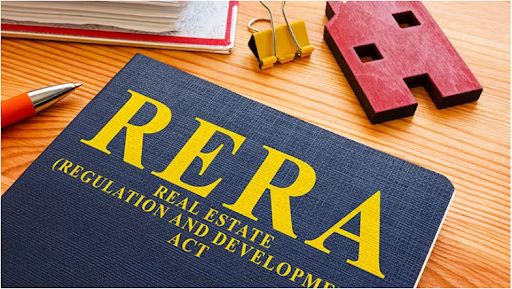In the dynamic world of Indian real estate, the Real Estate (Regulation and Development) Act, commonly known as RERA, has emerged as a game-changer. This comprehensive legislation aims to bring transparency, accountability, and reliability to the real estate industry. In this blog, we will walk you through the essential aspects of RERA registration, explaining the process and its significance for property buyers in India.
Applicability of RERA Registration:
RERA registration is vital for two main players in the real estate game: promoters and real estate advisors. Promoters include builders, developers, contractors, development bodies, or any public entity involved in constructing and developing properties for sale. A real estate advisor comprises individuals or entities involved in property sale and purchase transactions.
RERA registration is relevant to a variety of property types, including commercial buildings, residential apartments, and plots intended for sale. However, not all projects require RERA registration. This legislation applies to real estate projects that exceed 500 square meters or contain more than eight apartments.
The Process of RERA Registration:
The RERA registration process operates on a state-wise basis, meaning the steps may differ slightly from one state to another. Typically, you’ll submit your application online through the official website of your state’s regulatory authority. To initiate the process, promoters and real estate advisors must provide specific documents. While some documents may vary by state, certain documents are universally required, including:
For Promoter Registration:
- PAN Card of the Promoter: To verify the identity of the promoter.
- Information about Parking Slots: Details about available parking slots in the real estate project.
- Legal Title Deeds: Proof confirming the promoter’s ownership of the project land.
- Encumbrance Certificate: Establishing the land’s free title/ownership status.
- Commencement Certificate: Proof of project commencement.
- Sanction Plan, Layout Plan, and Location Details: Detailed blueprints of the project.
- Development Work Plan: A comprehensive plan for the project’s development.
- Details of the Promoter’s Previous Projects: If applicable, information about the promoter’s prior project experience.
- Additional Enterprise Documents: Relevant documents if the promoter operates as a company, partnership, society, or proprietorship.
For real estate advisor Registration:
- PAN Card:Essential for identity verification.
- Proof of Permanent Address: To establish the agent’s residence.
- Photograph: A recent photograph of the agent.
- Details of the Agent’s Enterprise: If applicable, including name, registered address, and enterprise type.
- Information about Enterprise Registration: Relevant documents such as bye-laws, memorandum of association, and articles of association, if applicable.
The RERA Registration Fee:
The registration fees for RERA vary depending on whether you’re a promoter or an agent, and these fees may differ from state to state. For example, in HRERA, the registration fee for residential or industrial projects varies based on their potential – Rs. 10 per square meter for high potential projects and Rs. 5 per square meter for medium to low potential projects. For commercial projects, it’s Rs. 20 per square meter for high potential projects and Rs. 10 per square meter for medium to low potential projects.
When it comes to agent registration under HRERA, the fee is Rs. 25,000 for individuals and Rs. 2,50,000 for non-individuals. Similarly, in UP RERA, the registration fee for residential projects is Rs. 10 per square meter for areas up to 1,000 square meters, and Rs. 500 per 100 square meters for areas exceeding 1,000 square meters. Agent registration in RERA UP costs Rs. 25,000 for individuals and Rs. 2,50,000 for non-individuals. Keep in mind that these fees are subject to change and may vary in other states.
Advantages of RERA Registration for Property Buyers:
Now, let’s explore the significant benefits that RERA registration offers to property buyers:
Timely Possession: RERA addresses one of the major concerns in the real estate sector – project delays. Promoters are required to provide an estimated completion date. Failure to meet this deadline results in penalties, ensuring timely possession of the property.
Transparency: Promoters must provide accurate project details, including the stage of completion and amenities, which cannot be altered later. This prevents deceptive practices and ensures transparency.
Mandatory Approvals: Promoters registered under RERA must obtain all necessary licenses and clearances before selling any units. This prevents delays due to the lack of mandatory approvals.
Post-Purchase Support: Promoters are responsible for rectifying any defects and deficiencies in the property post-purchase, providing peace of mind to buyers.
Anti-Fraud Measures: Promoters can advertise their projects only after obtaining RERA registration, and they must prominently display their registration number in advertisements. This reduces the chances of fraudulent schemes.
Financial Security: Buyers are only required to pay a booking amount of 10% after the registration of the sale agreement, reducing financial risks.
RERA registration is a significant milestone in the Indian real estate sector, bringing trust, accountability, and reliability to property transactions. Whether you’re a promoter or a real estate advisor, understanding the registration process and its advantages is crucial in navigating the evolving landscape of real estate in India. Stay informed, make informed choices, and ensure a brighter, more secure future in the world of real estate.













